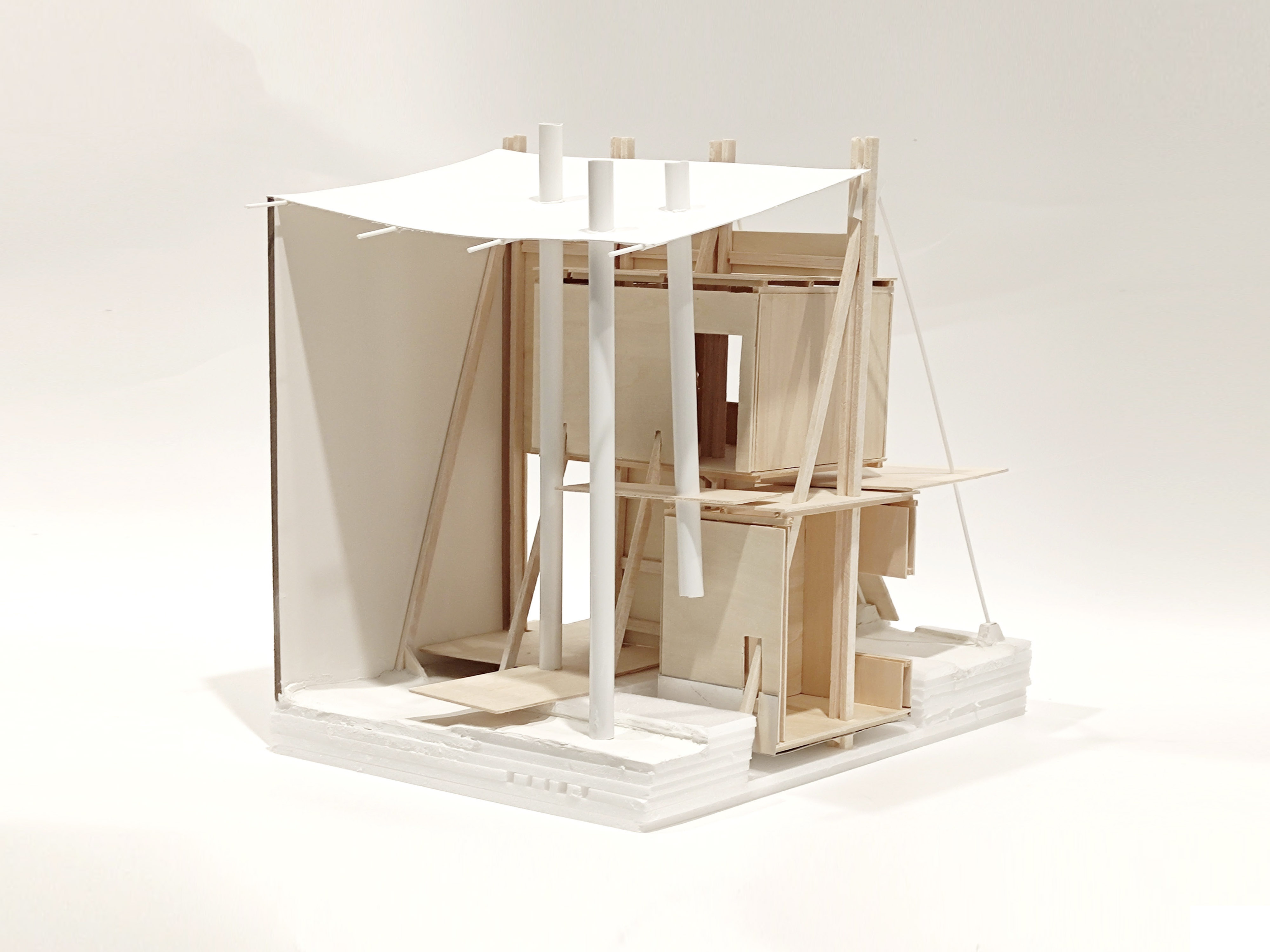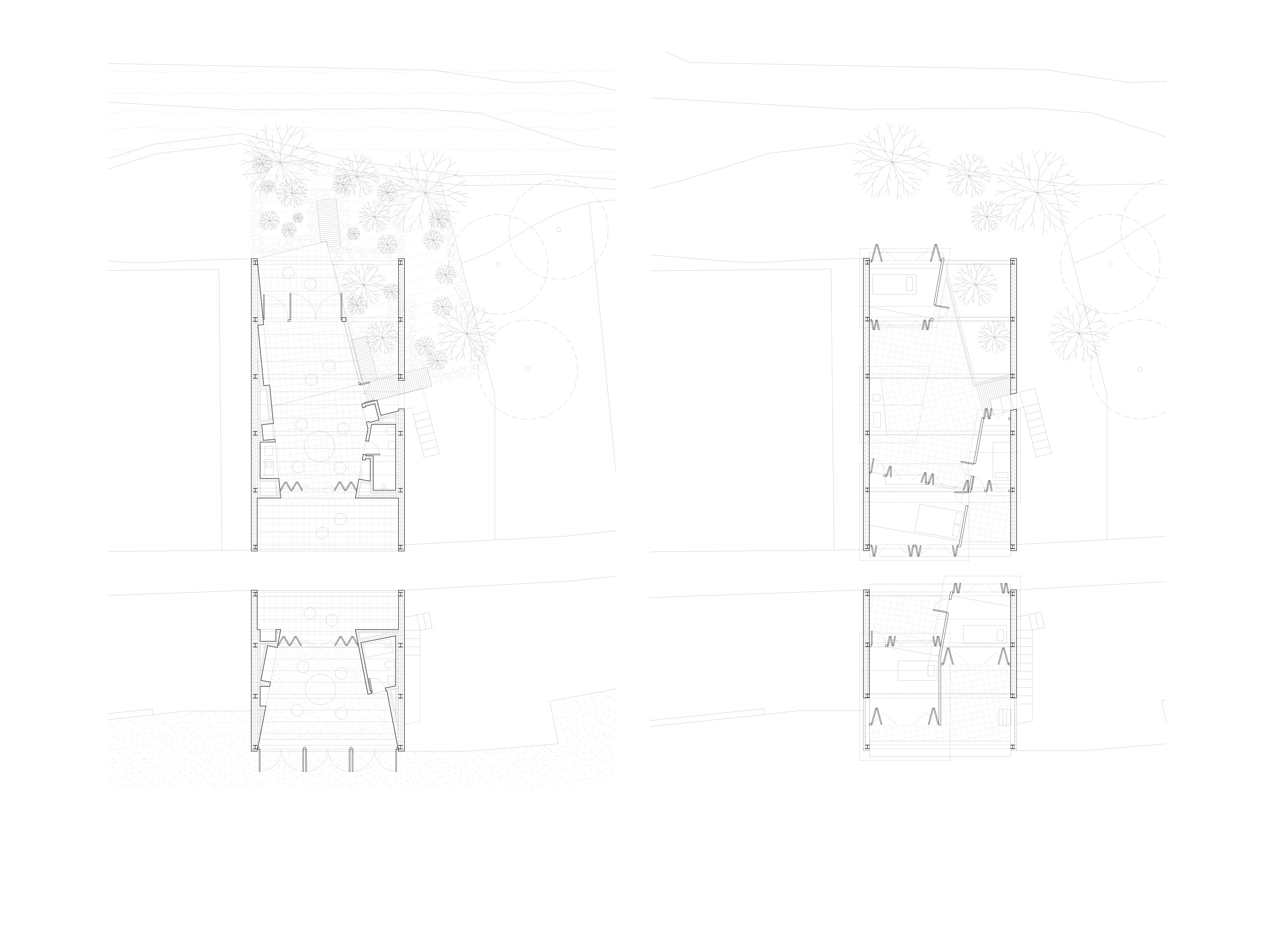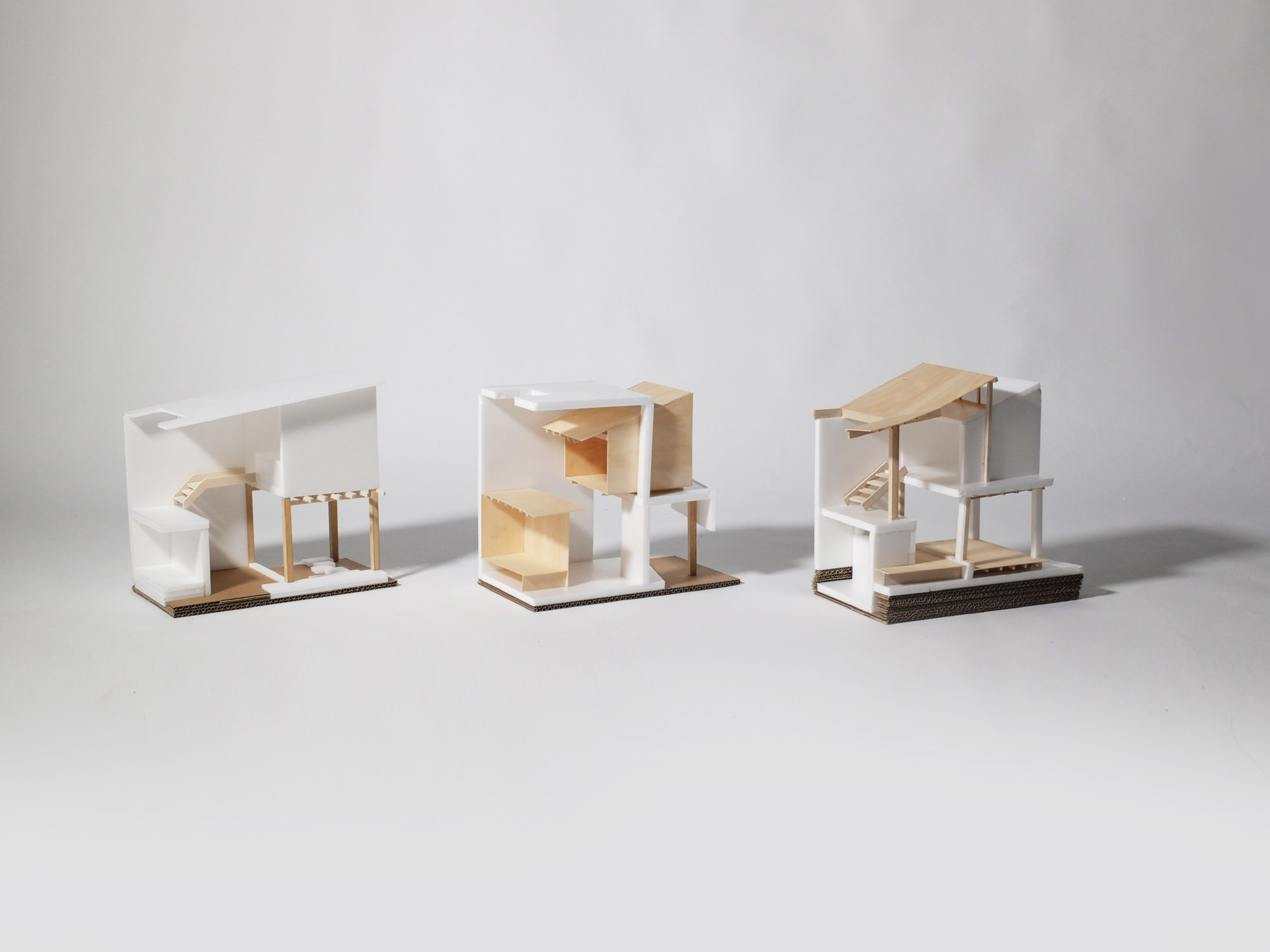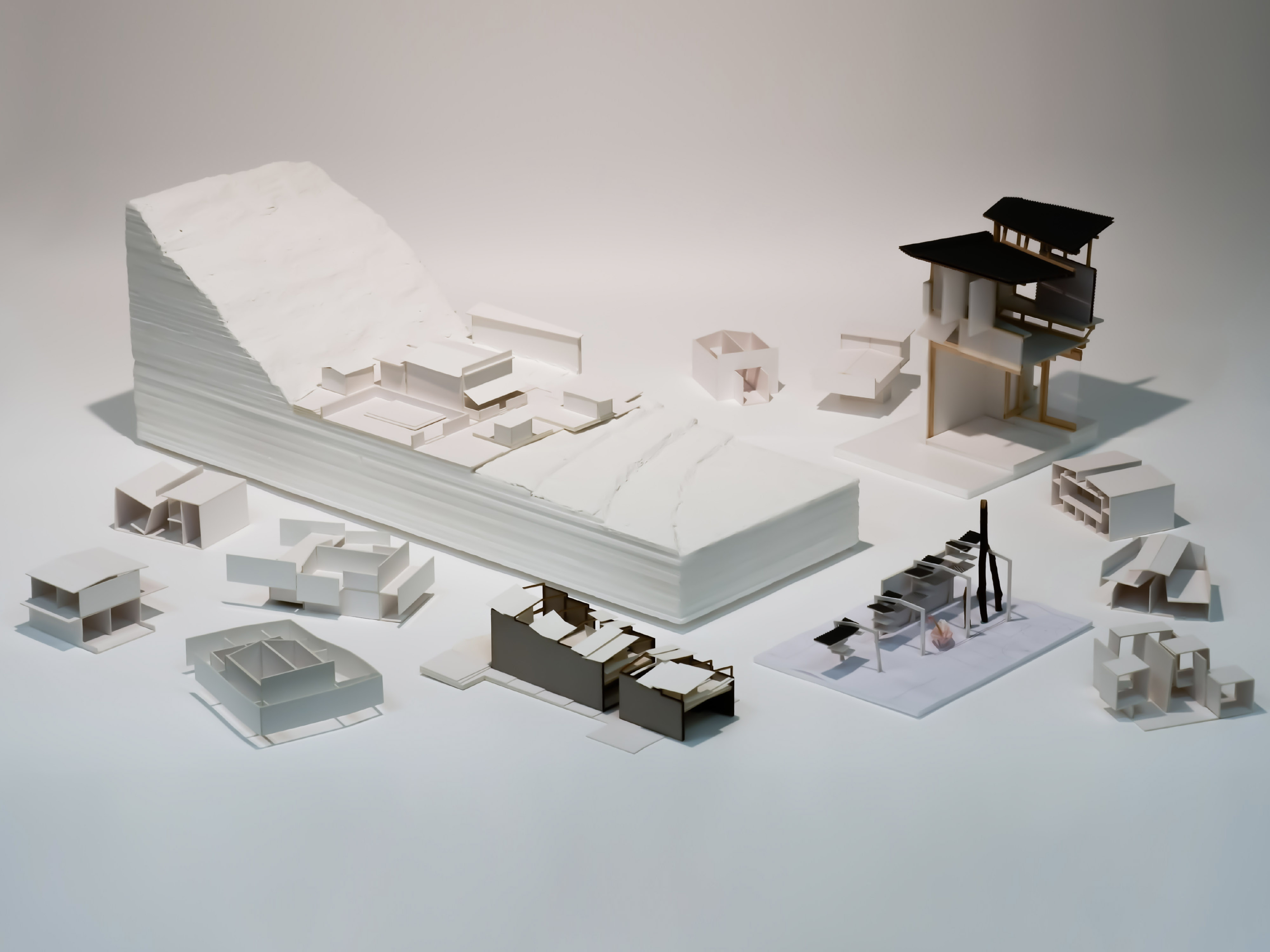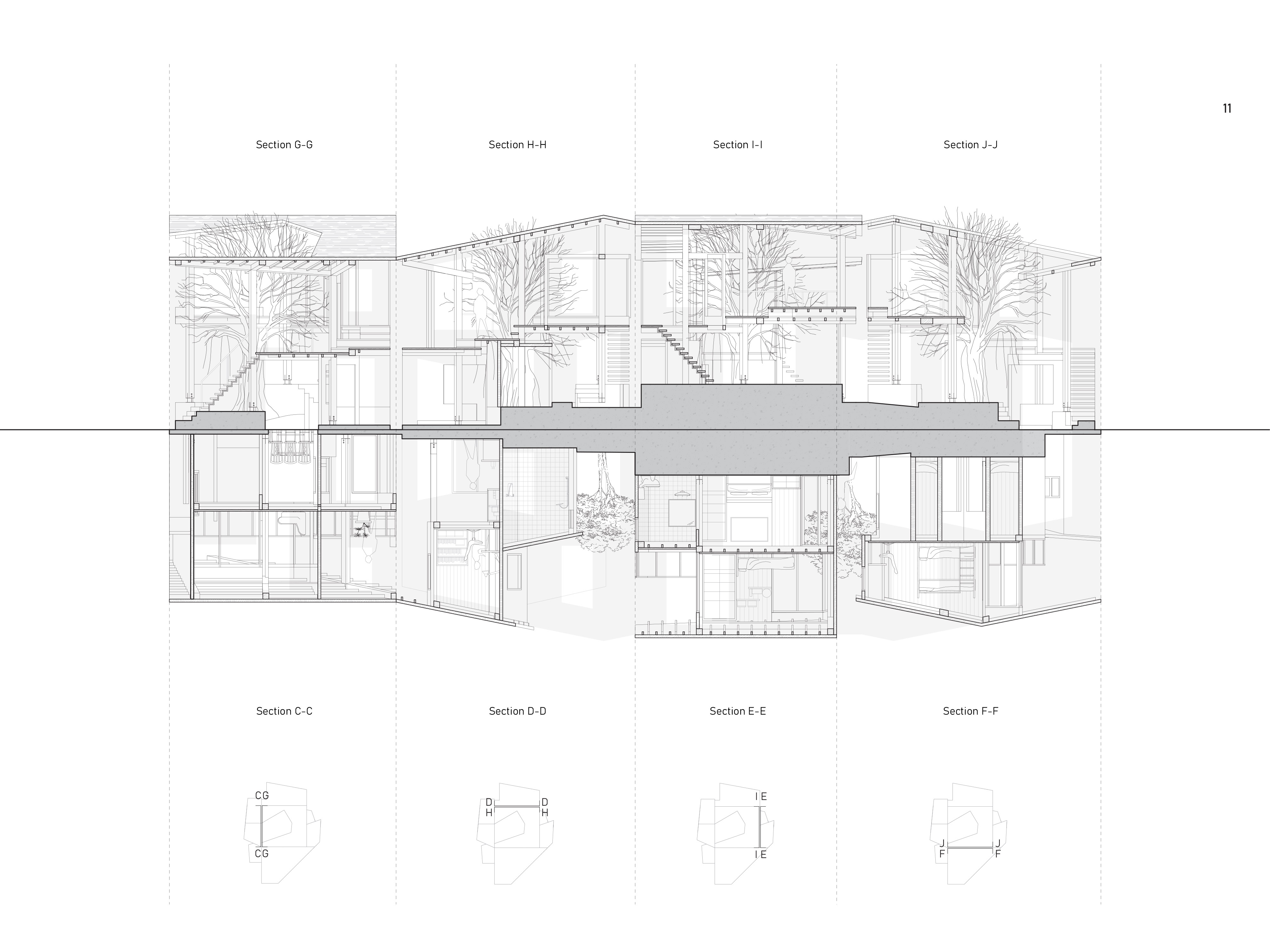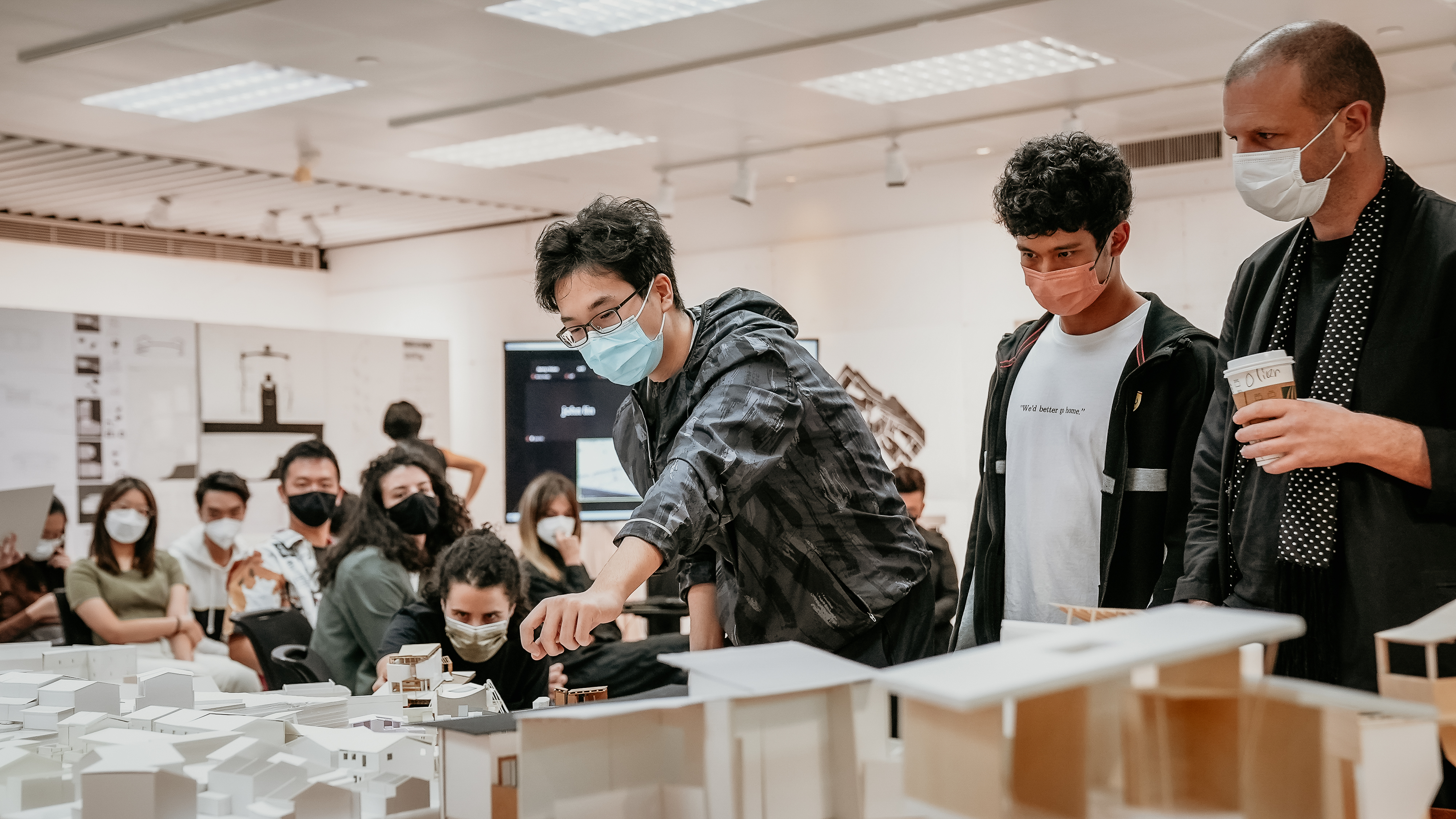
家宅 之六:住宅如水
再建吉澳漁民村 A HOUSE A HOME VI: HOUSES LIKE WATER
TRANSFORMING KAT O FISHING VILLAGE
港大建築 2021春 二年級設計工作室
HKU SPRING 2021 YEAR 2 DESIGN STUDIO
This studio explores the less-told stories from Hong Kong’s fishing villages and Tanka (boat people) communities, with a focus on the fishing village on Kat O Island. Situated at the fringe of the city, between the seams of the land and the water, these fishing villages often utilize natural landscapes and recycled materials for building through ad-hoc techniques that are possibly low-tech but filled with high wisdom.
While past studies on Hong Kong’s fishing villages primarily focus on anthropological analysis (Barbara Ward, E.N. Anderson Jr), cultural reading (Tik-sang Liu, Siu-woo Cheung), and artistic speculations (Oscar Ho Hing Kay), this research-based design studio will offer a new perspective to understand these communities through architecture, by combining the analysis of building techniques and living cultures as stories, told through their frugal planning of the site and materials, as well as hopeful anticipation for better livelihood.
More importantly, we hope these stories could create a greater degree of empathy, between the urban and the countryside, between islands and the mainland, and across and beyond the geographical and political boundaries. In our times of political and social confrontation, we want to explore a new method of design and research, one that is collaborative and offers public knowledge and social visibility.
The studio consists of three parts:
I. MEASURE: understanding the village in relation to nature
II. BRICOLAGE: iterating design through tectonic characters
III. NARRATIVE: imagining domesticities with space and time
再建吉澳漁民村 A HOUSE A HOME VI: HOUSES LIKE WATER
TRANSFORMING KAT O FISHING VILLAGE
港大建築 2021春 二年級設計工作室
HKU SPRING 2021 YEAR 2 DESIGN STUDIO
This studio explores the less-told stories from Hong Kong’s fishing villages and Tanka (boat people) communities, with a focus on the fishing village on Kat O Island. Situated at the fringe of the city, between the seams of the land and the water, these fishing villages often utilize natural landscapes and recycled materials for building through ad-hoc techniques that are possibly low-tech but filled with high wisdom.
While past studies on Hong Kong’s fishing villages primarily focus on anthropological analysis (Barbara Ward, E.N. Anderson Jr), cultural reading (Tik-sang Liu, Siu-woo Cheung), and artistic speculations (Oscar Ho Hing Kay), this research-based design studio will offer a new perspective to understand these communities through architecture, by combining the analysis of building techniques and living cultures as stories, told through their frugal planning of the site and materials, as well as hopeful anticipation for better livelihood.
More importantly, we hope these stories could create a greater degree of empathy, between the urban and the countryside, between islands and the mainland, and across and beyond the geographical and political boundaries. In our times of political and social confrontation, we want to explore a new method of design and research, one that is collaborative and offers public knowledge and social visibility.
The studio consists of three parts:
I. MEASURE: understanding the village in relation to nature
II. BRICOLAGE: iterating design through tectonic characters
III. NARRATIVE: imagining domesticities with space and time
Students
Iu Shing Chun Chris, Ku Wun Lucinda, Law Tsz Hin 6.3, Leung Man Wah Chloe, Liu Hoi Ching, Mak Cheuk Yan Eunice, Sin Oi Yin Nicole, Tsang Yee Lam Elim, Wong Ho Wang Caleb, Wong Jing Hymn Joseph, Zhang Yifan
Critics
Midterm Review
Eike Schling, Ying Zhou, Jeff Cheng, Anthony Ko, Human Wu, Suzy Liu, Francis Lam, Jimmy Ho, Aron Tsang
Final Review
Tamotsu Ito, Zhu Jingxiang, Cecilia Chu, Ying Zhou, Liu Yanchen, Clover Lee, Nuno da Silva Tang, Li Bin, Luo Le, Lily Zhang
Eike Schling, Ying Zhou, Jeff Cheng, Anthony Ko, Human Wu, Suzy Liu, Francis Lam, Jimmy Ho, Aron Tsang
Final Review
Tamotsu Ito, Zhu Jingxiang, Cecilia Chu, Ying Zhou, Liu Yanchen, Clover Lee, Nuno da Silva Tang, Li Bin, Luo Le, Lily Zhang
